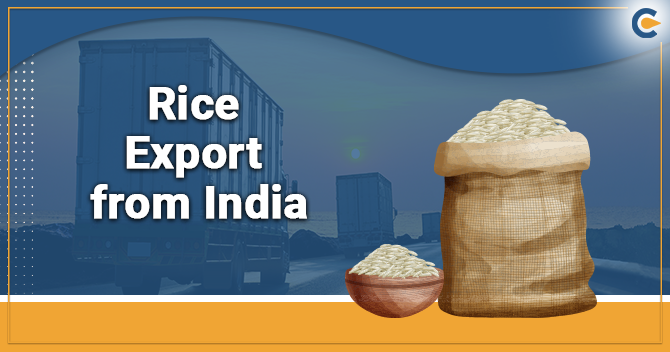India has the world’s largest dairy industry- in terms of milk production. In the preceding FY, India produced more than 146 million of milks. This production figure was 50% higher than that of US and approx three times as much as the new growth champ, China. The dairy sector in our country has witnessed incredible growth in the last decade. India has now become one of the prominent producers of dairy products in the world. The major destinations for dairy export include UAE, Bangladesh, U.S.A, Bhutan, & Singapore. This write-up pinpoints the mandatory registrations to commence the business of dairy exports from India.
Prominent Dairy Items that are shipped outside India
Common Dairy Products available for Export from India includes:
- Butter Fresh
- Butter MilK
- Butter Oil
- Fresh Cheese
- Milk & Cream in Powder
- Milk for Babies
- Other Fat
- Skimmed milk powder
- Other milk power
- Whole Milk
- Ghee
What are the prominent Areas of Production for dairy products?
Uttar Pradesh, Maharashtra, Himachal Pradesh, Madhya Pradesh, Punjab, Rajasthan, Tamil Nadu are the major production area of Dairy Products in India.
Fundamental Legal Requisites for Commencing Dairy Export business in India
Here is the list of the mandatory registration for starting Dairy export business in India
Firm Incorporation
Firm Incorporation is the first step toward setting up a legally viable dairy export business in India. There are plenty of business structures available to start-ups aiming to initiate their business journey in a legalized way.
Here are the list of different business structures available to start-up in status-quo
- Private Limited company
- Public Limited company
- One person company (aka OPC)
- Partnership firm
- LLP
- The top three business structures in the aforementioned list come under the regime of Company Act, 2013 and their incorporation is granted by the Ministry of Corporate Affairs (MCA[1]).
- The LLP (limited liability partnership) is regulated by the provisions of LLP Act, 2008.
- Partnership firm, on the other hand, needs to abide by the provisions cited under the Partnership Act, 1932.
- Partnership deed lays the foundation of the partnership-based firm as its entail various clauses such as partners’ obligations, winding up, reconciliation, so on and so forth.
- One person company is a perfect choice for start-ups that seeks less compliance.
Import Export Code (IEC)
IEC certificate is a legal mandate for exporters in India. The Directorate General of Foreign Trade possess the right to grant the Import-Export Code to the exporters in India. Applicant seeking IEC Registration certificate needs to visit the DGFT’s portal and fill an e-file. After including the requested detail and document in the form, make the online payment regarding the license fee and submit the application via DSC or EVC.
APEDA certificate
APEDA, i.e. Agricultural and Processed Food Products Export Development Authority, is an apex body that functions under the aegis of GOI. Formerly known as the Processed Food Export Promotion Council (PFEPC), the primary role of this institution is to promote the export of scheduled products. APEDA certificate is compulsory for the export of dairy products. One can avail of this certification by submitting an e-form on the APEDA’s portal. During application filing, the portal will prompt you to upload the basic documentation for the validation process. Finally, you will be routed to the payment gateway for the fee submission after uploading the requested documentation.
FSSAI Central License
Every Food business operator in India, including the dairy export business, needs to avail of the FSSAI food license. It is granted by the FSSAI against the e-form submitted on the portal called FOSCOS. Keep in mind that the businesses aiming for dairy export needs to obtain the FSSAI Central License.
Primarily, the grant of the FSSAI license is done on the basis of the following parameters:
- Area of operation
- Annual Turnover
- Product capacity
Casting Light on the Growth Potential of Dairy Export Sector
- Worldwide milk production in FY 2018 was stood at 843 million tonnes, an increase of 2.2% from FY 2017, steered by production diversification in India, the USA, Turkey, and Argentina. Out of this, Indian solely accounted for 186 million tonnes making it a prominent contender in the global competitive landscape with 22% of the worldwide output.
- India’s milk production has been compromised due to the factors like water scarcity, the presence of an unorganized market, inadequate feed and fodder resources, old farming techniques, and inadequate veterinary services.
- This, paired with a string of other factors prevents our country from being a prominent player in the global dairy market. In fact, India’s share in worldwide dairy exports stands at nearly 1% when contrasted with major contenders like Germany (12.4%), NZ (12%), Netherlands (11.6%), France (8.3%), and America (5.3%)
- It is projected that the global dairy market demand will experience a two-digit growth in the future with China and India being the primary growth engines. This further increases the requirement for exploring other markets for Indian dairy products in tandem with growing global demand and the expected dip in output levels of many developed nations.
- Presently, the Indian dairy industry is limited to fulfilling the needs of the domestic market and other conventional markets mostly in the Middle eastern region and in SAARC.
Conclusion
Businesses indulge with the dairy export needs to cater to various legal implications as mentioned above. If you seek more clarification on the same, then do not hesitate to confront our professionals.
Read our article:Exporting food items to the USA? Secure IEC, EIC, & FDA Registration













